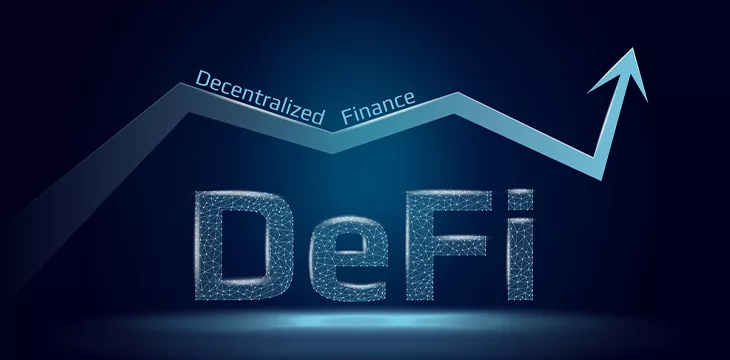EU regulator warns of DeFi risks, introduces smart contract categories
The post EU regulator warns of DeFi risks, introduces smart contract categories appeared on BitcoinEthereumNews.com. In two reports published October 11, the European Securities and Markets Authority (ESMA) warned of the “serious risks” decentralized finance (DeFi) poses to investors, including those related to decentralized exchanges and wash trading, and outlined a methodology for categorizing smart contracts. ESMA is an independent European Union regulatory authority and the body in charge of setting the rules for the digital asset space under the bloc’s Markets in Crypto Assets (MiCA) regulations. The first of its two reports, “Decentralised Finance in the EU: Developments and risks,” described DeFi as “the latest and arguably most innovative development in the crypto area.” “Although investors’ exposure to DeFi remains small overall, there are serious risks to investor protection, due to the highly speculative nature of many DeFi arrangements, important operational and security vulnerabilities, and the lack of a clearly identified responsible party,” said ESMA. Despite the aforementioned risks to investors, ESMA concluded that “DeFi does not represent a meaningful risk to financial stability at this juncture, considering its small size.” However, the regulator suggested this is something that would require monitoring as the “phenomenon” continues to evolve quickly. ESMA outlined one of the specific concerns related to decentralized exchanges (DEXs), which “purport to eliminate important pain points in the trading of crypto-assets but bear their own flaws and challenges.” DEX concerns and wash trading ESMA noted that the anonymity and pseudonymity DeFi allows for can lead to bad market practices in DEXs, such as the spread of wash trading, a scourge of the digital asset space. Wash trading is a market manipulation practice by which an entity simultaneously sells and buys the same assets or financial instruments, creating a false impression of market activity without incurring real risk or changing a market position. “Wash trading can exist in traditional markets (and is considered unlawful) but in the case…

The post EU regulator warns of DeFi risks, introduces smart contract categories appeared on BitcoinEthereumNews.com.
In two reports published October 11, the European Securities and Markets Authority (ESMA) warned of the “serious risks” decentralized finance (DeFi) poses to investors, including those related to decentralized exchanges and wash trading, and outlined a methodology for categorizing smart contracts. ESMA is an independent European Union regulatory authority and the body in charge of setting the rules for the digital asset space under the bloc’s Markets in Crypto Assets (MiCA) regulations. The first of its two reports, “Decentralised Finance in the EU: Developments and risks,” described DeFi as “the latest and arguably most innovative development in the crypto area.” “Although investors’ exposure to DeFi remains small overall, there are serious risks to investor protection, due to the highly speculative nature of many DeFi arrangements, important operational and security vulnerabilities, and the lack of a clearly identified responsible party,” said ESMA. Despite the aforementioned risks to investors, ESMA concluded that “DeFi does not represent a meaningful risk to financial stability at this juncture, considering its small size.” However, the regulator suggested this is something that would require monitoring as the “phenomenon” continues to evolve quickly. ESMA outlined one of the specific concerns related to decentralized exchanges (DEXs), which “purport to eliminate important pain points in the trading of crypto-assets but bear their own flaws and challenges.” DEX concerns and wash trading ESMA noted that the anonymity and pseudonymity DeFi allows for can lead to bad market practices in DEXs, such as the spread of wash trading, a scourge of the digital asset space. Wash trading is a market manipulation practice by which an entity simultaneously sells and buys the same assets or financial instruments, creating a false impression of market activity without incurring real risk or changing a market position. “Wash trading can exist in traditional markets (and is considered unlawful) but in the case…
What's Your Reaction?










































